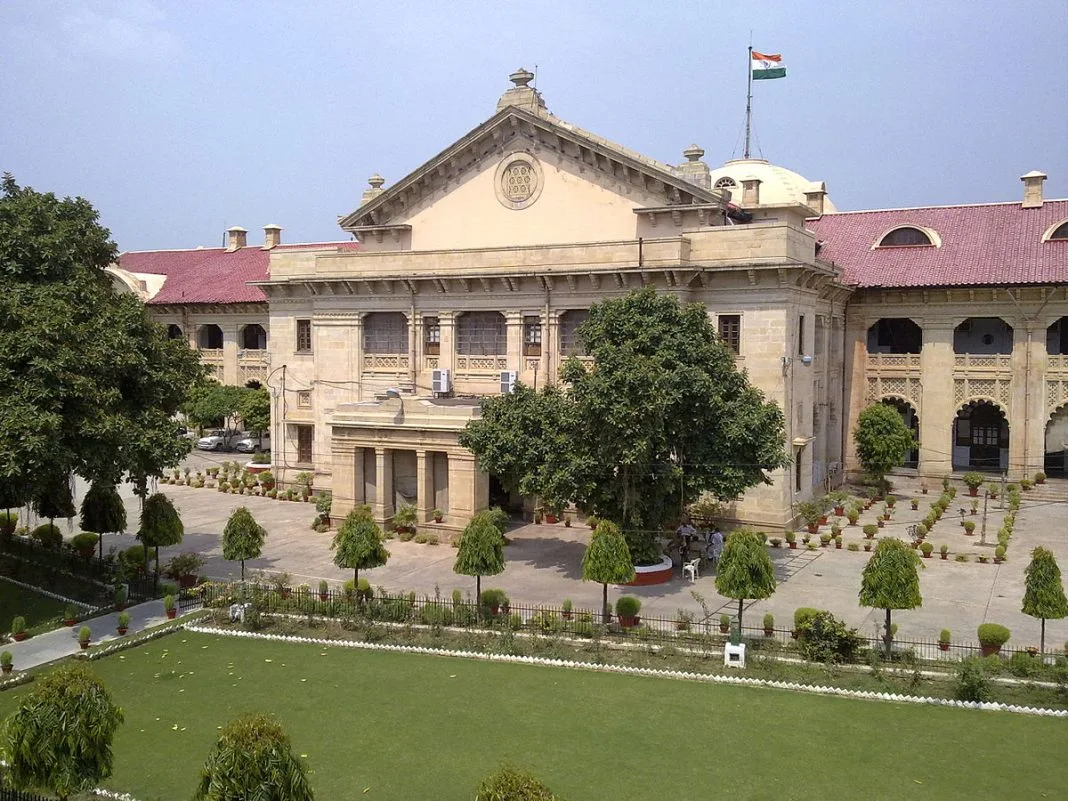The Allahabad High Court while dismissing the habeas corpus petition said that the writ of habeas corpus is a prerogative writ and an extraordinary remedy. It is a writ of right and not a writ of course and may be granted only on reasonable ground or probable cause being shown.
A Single Bench of Justice Yogendra Kumar Srivastava passed this order while hearing a habeas corpus petition filed by Jaishree and Another.
The petition has been filed for a writ of habeas corpus alleging that the petitioner no1, wife of the petitioner no 2 (husband), is under illegal detention of the respondent no 4, who is stated to be the maternal uncle of petitioner no 1.
The case as set up in the petition indicates that, on 24.07.2023, the petitioner no 1 (wife) left the house of petitioner no 2 along with some cash and jewellery.
It is further averred that consequent to filing of a complaint at the police station, the petitioner no 1 agreed to come back to her matrimonial home; however, on 27.11.2023, she again left the house of petitioner no 2 alongwith her maternal uncle i.e respondent no 4.
It is sought to be asserted that subsequently despite efforts being made by the petitioner no 2 (husband), the petitioner no 1 (wife) is not willing to come back to her matrimonial home.
AGA-I submitted that from the pleadings in the petition it is apparent that petitioner no 1 has left her matrimonial home on her own and there is no material to suggest that she is under illegal detention.
Accordingly, it is submitted that in the aforesaid circumstances, the petition seeking a writ of habeas corpus would not be maintainable. Reliance in this regard is placed upon the judgment of the Court in Soniya and another Vs State of UP and others.
The Court said that,
The writ of habeas corpus has been held as a festinum remedium and accordingly the power would be exercisable in a clear case. The remedy of writ of habeas corpus at the instance of a person seeking to obtain possession of someone whom he claims to be his wife would therefore not be available as a matter of course.
The power to direct search for persons wrongfully confined is provided under Section 97 of the Code of Criminal Procedure, 1973 whereas Section 98 provides the procedure to compel restoration of abducted females. In a situation where the husband seeks to assert that the wife, without reasonable cause, is refusing to return to her matrimonial home, it would be open for him to seek the remedy of restitution of conjugal rights under Section 9 of the Hindu Marriage Act, 1955. The recourse to the latter remedy may be sought where the detention does not amount to an offence and to the former if it does. While invoking either of these remedies, all the issues relating to facts can be agitated and examined, whereas a writ of habeas corpus may not be issued where facts are disputed or are not clearly established.
The exercise of extraordinary jurisdiction. For issuance of writ of habeas corpus would be dependent on the jurisdictional fact where the petitioner establishes a prima facie case that the detention is unlawful, which apparently is not demonstrated from the facts which are on record in the case.
“In view of the other remedies available for the purpose, under criminal and civil law, exigence of a writ of habeas corpus at the behest of a husband to regain his wife would be rare and may not be available as a matter of course and the power in this regard may be exercised only when a clear case is made out.
In the facts of the case, the petitioner no 1 having left her matrimonial home, on her own volition, and there being no material to establish the factum of illegal detention, the petition seeking writ of habeas corpus at the behest of the petitioner no 2 (husband), would not be entertainable”, the Court observed while dismissing the petition.
“It would be open to the petitioner no 2 to avail the appropriate legal remedies, under the civil and criminal law, as he may be advised”, the order reads.


